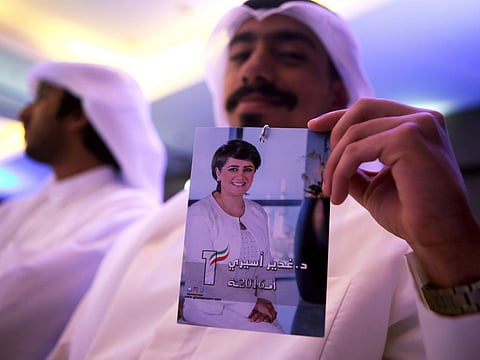287 candidates to run in Kuwait’s elections
455 signed up to take part in the polls but 128 pulled out and 40 were barred by the election committee

Manama: Kuwait’s interior ministry said that 287 candidates would be running in the parliamentary elections on Saturday.
Initially, 455 people signed up their names in the five electoral districts in the national polls for parliamentary seats, but 128 later pulled out of the race and 40 were barred by the committee tasked with verifying the eligibility of the candidates.
The disqualifications were based on the security records and on the reputations of the hopefuls.
Some candidates were barred for not fulfilling the procedural requirements, including the physical presence to submit the application.
Several candidates who were barred by the committee resorted to the administrative court, launching a legal battle with the government that reached in some cases the Court of Cassation, the highest court in the country.
According to the figures released by the ministry, 72 people registered their names in the first district, but 13 withdrew and seven were barred, leaving only 52 candidates.
In the second district, 61 submitted applications, 12 pulled out and five were disqualified, keeping only 44 in the contest.
In the third district, 54 candidates will run, down from the 66 who signed up, after seven pulled out and five were barred.
The fourth district will field 68 candidates following the withdrawal of 37 and the disqualification of 11 from the initial figure of 116 hopefuls.
In the fifth district, 140 people submitted their candidacy, but 59 later decided not to run and 12 were not allowed to contest, leaving the total of candidates at 69, the highest figure.
Out of the 287 candidates, 14 are women, the second lowest figure since women were allowed to vote and run in parliamentary elections.
The highest figure was 28 in 2006 when women ran for the first time, followed by 27 in 2008, and 23 in February 2012.
Reports in Kuwait said that 79 former lawmakers would be seeking re-elections to the parliament. They include 41 from the outgoing parliament dissolved in October and 38 from previous parliaments.
Around 30 of the candidates are described as opposition figures and 25 of them are former lawmakers.
The opposition boycotted the elections in 2013 to protest the amendment of the electoral law that slashed the number of candidates a voter could elect from four to one.
The opposition, mainly a combination of Islamists and tribal figures, claimed that the amendment was meant to reduce its influence, but the government insisted that it wanted to follow international standards of “one person, one vote.”
Two brothers, Hussain Al Qallaf and Fakher Al Qallaf, will be fighting for seats in the first district, alongside 10 members of the outgoing parliament and nine former lawmakers from previous parliaments.
Sign up for the Daily Briefing
Get the latest news and updates straight to your inbox



